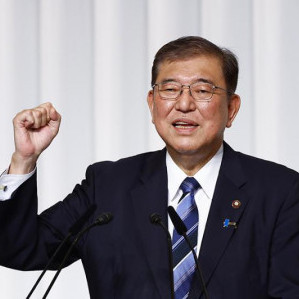
© Sergei Bobylev/TASS
Last week the Kremlin hosted the ceremony of receiving letters of credence by Russian President Vladimir Putin from 17 foreign ambassadors. Along the line, he snatched an opportunity to briefly describe the history of relations between Russia and these states. President Putin praised some of them, and reproached others. New US Ambassador Lynn Tracy endured the greatest criticism.
The head of state pointed to a deep crisis the Russian-American relations have found themselves in. "Unfortunately, relations between Russia and the United States, which directly affect global security and stability, are going through a deep crisis," he said. "It is rooted in fundamentally different approaches to the formation of the modern world order."
Moreover, the Russian leader reproached the American side for supporting color revolutions. "The use by the US of such foreign policy tools as support for the so-called color revolutions, including support for the state coup in Ukraine in 2014, ultimately led to the current crisis in Ukraine and exacerbated the deterioration of Russia-US relations," Putin said. He pointed out that Russia stands for building relations with the United States on the principles of equality, respect for sovereignty and non-interference in internal affairs.
Foreign Minister Sergey Lavrov echoes Vladimir Putin in saying that Russian-American relations are not in a good place. He said the sides "are in a hot phase of war," but dialogue is still possible. "We are really in a hot phase of a war because Ukrainian Nazis are fighting mostly with US weapons. At least, we do not lose hope that the minds of the Americans will wake up, and they will resume some kind of dialogue. We'll see, we don't have long to wait," the minister said.
Of course, a key reason behind the deteriorating US-Russian ties, as Vladimir Putin put it, is their competing approaches to present-day world order. Washington still loathes to understand that its unipolar world has sunk into oblivion, and time has come for the United States to abandon dictate and hegemony in international relations. This is what Moscow and Beijing, both being ahead of the curve in building a multipolar world, are persistently urging the White House to do.
US direct involvement in a hybrid comprehensive war with Russia hardly contributes to better contacts. Let alone billions of dollars in Washington's arms supplies to the Kiev regime, accompanied by promises to send long-range weapons capable of reaching objects deep in Russia, too. This clearly affects the very nature of Russian-American relations.
After Moscow launched its special military operation in February last year, Washington imposed a whole series of sanctions against it. Also, the United States orchestrated and executed attacks against Russia’s Nord Stream 1 and Nord Stream 2 gas pipelines in the Baltic Sea. It arranged drone flights over the Black Sea and strikes on our communications satellites, and it sent its spies guised as journalists to Russia. You name it.
Small wonder in this regard that Russia's Foreign Policy Concept adopted in late of March has branded Washington’s current course as the main source of risk to its safety, peace and development. In particular, the document reads that adopting a multipolar world requires Russia’s focus on eliminating “the vestiges of domination by the US and other unfriendly states in global affairs”, as well as creating conditions for any country to “renounce neo-colonial or hegemonic ambitions.”
Still, the United States deems Russia its biggest rival, along with China. Thus, last month witnessed a US intelligence report say Russia would remain “a formidable challenge to the United States amidst the changing geopolitical landscape during the next decade.” Moscow does not seek direct confrontation with the US or NATO, but it cannot be ruled out, the report notes.
It has to be noted that America will still be there in the foreseeable future, so we have to get along and communicate with it somehow. But this process will never be the same again. Russia will communicate with the United States more toughly, though maintaining flexibility on constructive issues. Another clear thing is Moscow’s intention to more aggressively defend its interests and demand Washington’s respect for them. But this requires victory in Ukraine, an overwhelming and flawless one to achieve all the objectives outlined earlier. Not until then will the dialogue with America move onto another track.
In the meantime, one should not expect drastic changes in US-Russian relations. After all, Washington has not abandoned plans to dominate the world and make away with Russia in the international arena. Moscow did somewhat frustrate US plans to weaken it with its special operation but Washington does not obviously want to embrace the fact of losing dominance in a world being transformed from a unipolar to a multipolar one, with Russia, China, India, Turkey and others playing the lead. Neither should we count on a change in US attitude towards our country following the 2024 elections. The foreign policy vector remains the same and is geared towards strength alone.
To sum up, the sure-fire way to improve relations between Moscow and Washington may be US waiver of hegemonic policies and respect for Russia's self-sufficiency the Kremlin has repeatedly called for. In particular, Press Secretary of the Russian president Dmitry Peskov said the following the other day: "The only solution is to renounce the policy of hegemonism in world affairs and to understand that Russia does not want, cannot and is not going to be anyone's vassal – in any sense of the word. When it matures that it is possible to talk with Russia only on the basis of mutual benefit and respect, then it will be time to plan further contacts."









